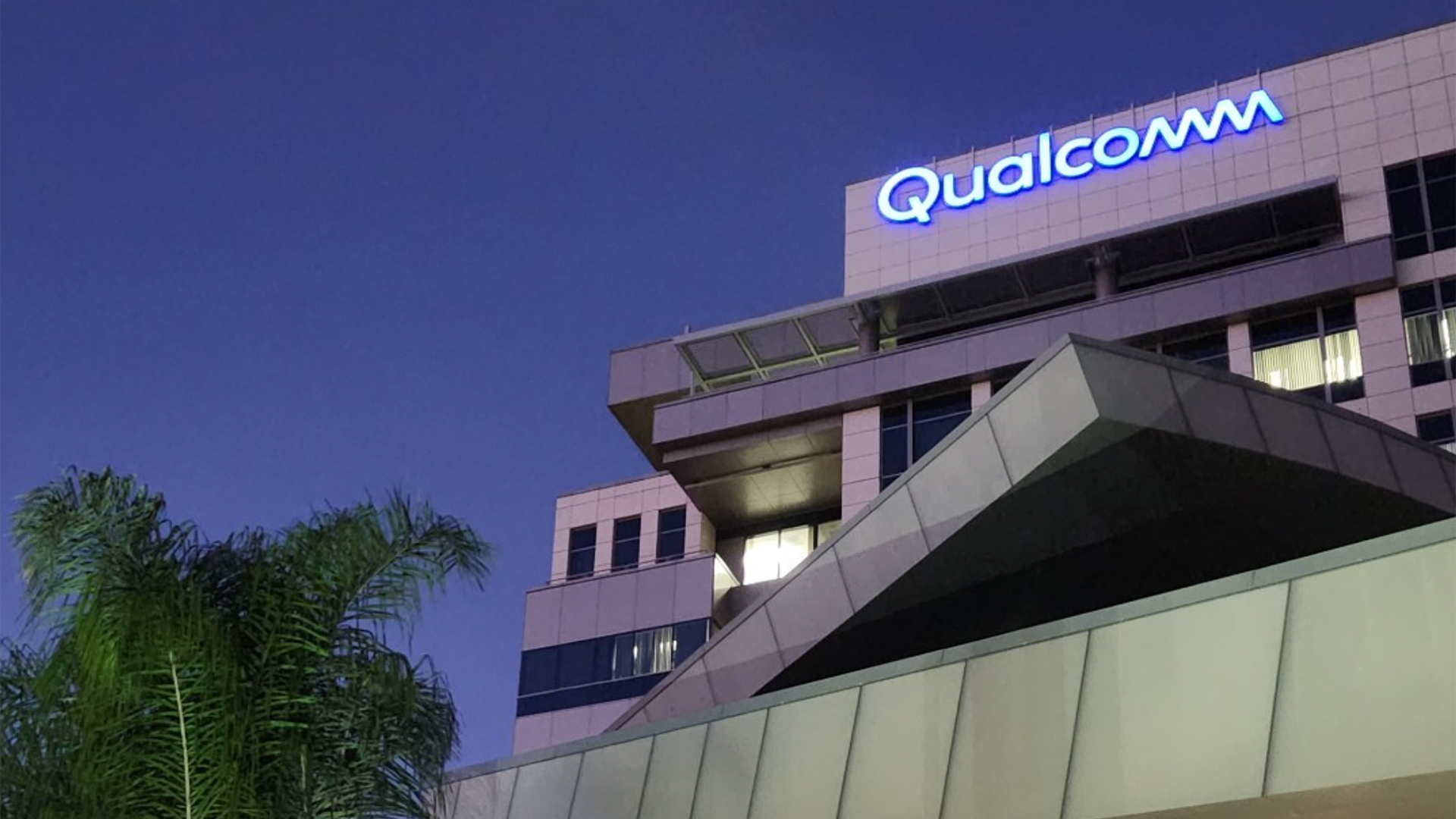Qualcomm scores big win over Arm in contentious lawsuit — U.S. court rejects Arm’s lawsuit, confirms Qualcomm’s can use Oryon cores acquired via Nuvia
Final ruling ends Arm’s lawsuit over Oryon cores

Qualcomm, along with its subsidiary Nuvia, have finally won the legal battle against Arm Holdings, which had accused the chip-maker of violating license agreements tied to its chip designs. A U.S. District Court judge in Delaware ruled that neither Qualcomm nor its subsidiary breached any of Arm’s architecture license agreement (ALA), dismissing the lone remaining claim in the case and also rejecting Arm's request for a new trial.
The latest ruling follows Qualcomm’s trial victory from December 2024, where the company was found innocent. However, at the time, the jury was unable to agree on whether Nuvia violated its licensing terms with Arm.
The dispute centered on Qualcomm’s use of Oryon cores for its Snapdragon X range of client processors based on Arm’s v8 architecture, created by Nuvia for server-grade chips.
Arm claimed that Qualcomm was supposed to renegotiate licensing terms following its acquisition of Nuvia. Additionally, Arm demanded that the designs be scrapped for allegedly breaching Nuvia’s original Arm licenses. Qualcomm, however, maintained that its existing Architecture License Agreement (ALA) for Arm’s instruction set architecture already extended to designs developed by its subsidiaries, including Nuvia.
Following the verdict, Ann Chaplin, General Counsel and Corporate Secretary at Qualcomm, said “With the Court’s decision today, Qualcomm and its subsidiary Nuvia have achieved a full victory. This decision follows Qualcomm’s December 2024 jury trial win and is a full and final judgment in Qualcomm’s favor. Our right to innovate prevailed in this case and we hope Arm will return to fair and competitive practices in dealing with the Arm ecosystem.”
It is interesting to note that the Qualcomm Oryon general-purpose cores found inside Snapdragon X processors are based on Arm’s Armv8 instruction set architecture (ISA). However, it incorporates “one percent or less” of Arm’s own technology according to Gerard Williams III, one of the lead developers of Oryon and former Apple chip designer.
Williams co-founded Nuvia in 2019 with the aim of building high-performance, energy-efficient custom CPU cores for datacenters, known as Phoenix. To do so, the company secured two licenses from Arm, including a Technology License Agreement (TLA) to modify existing cores and an Architecture License Agreement (ALA) to design custom ones. Since Nuvia’s strategy was to pursue custom designs from the outset, the team developed its cores from scratch, relying minimally on Arm’s physical IP.
Get Tom's Hardware's best news and in-depth reviews, straight to your inbox.
Qualcomm has stated that a separate lawsuit against Arm is still ongoing. The case involves claims of breach of contract, interference with customer relationships, and conduct aimed at hindering innovation while promoting Arm’s own products over those of long-standing partners. The company added that it expects the trial to begin in March 2026.
Follow Tom's Hardware on Google News, or add us as a preferred source, to get our up-to-date news, analysis, and reviews in your feeds. Make sure to click the Follow button!

Kunal Khullar is a contributing writer at Tom’s Hardware. He is a long time technology journalist and reviewer specializing in PC components and peripherals, and welcomes any and every question around building a PC.
-
Air2004 "The latest ruling follows Qualcomm’s trial victory from December 2024, where the company was found innocent."Reply
You might wanna correct that sentence. Companies in a court of law are just like people when it comes to the verdict.... and in this case the proper term would be Not Guilty. The word "innocent" is never used when rendering a verdict. -
abufrejoval Reply
Splitting hairs, are we?Air2004 said:"The latest ruling follows Qualcomm’s trial victory from December 2024, where the company was found innocent."
You might wanna correct that sentence. Companies in a court of law are just like people when it comes to the verdict.... and in this case the proper term would be Not Guilty. The word "innocent" is never used when rendering a verdict.
Innocent comes from the Latin verb "nocere", which means to harm or injure, the prefix "in" the equivalent of "un" in many Germanic languages.
Innocent thus means unharmed or uninjured, something that doesn't really fit an actor, more a passive subject, whereas here it was about Qualcomm doing something potially ill or being malfeasant (faire mal, French this time around).
So 'not guilty' is a much better fit semantically, no matter what those wannabe Latin speakers of the jurisprudence use, while I'm not convinced that actually applied in this case. -
thestryker On the face of it this lawsuit always seemed silly because of Qualcomm's existing licenses. Now that Arm has Ampere Computing and is directly competing with their own customers it sure lends credence to a lot of what Qualcomm was saying.Reply
Not that anyone really wins when big companies go after each other, but this one seemed as dangerous to the Arm industry as nvidia buying them did. -
Dav_Daddy Reply
This isn't a criminal matter so both are incorrect. This is a Tort claim which is an area of Civil law that deals with when one party causes injury or loss to another.Air2004 said:"The latest ruling follows Qualcomm’s trial victory from December 2024, where the company was found innocent."
You might wanna correct that sentence. Companies in a court of law are just like people when it comes to the verdict.... and in this case the proper term would be Not Guilty. The word "innocent" is never used when rendering a verdict.
As such the correct term would be liable or not liable. -
Pemalite Qualcomm should just buy ARM outright. They ironically probably make more money from ARM than ARM itself.Reply -
Notton Reply
When Nvidia tried that, they were denied the deal by at least two governments.Pemalite said:Qualcomm should just buy ARM outright. They ironically probably make more money from ARM than ARM itself.
Even though the heads have changed, I somehow doubt this would be allowed under Qualcomm. -
bit_user Reply
Given that they acquired Ampere after the verdict of the previous trial went in Qualcomm's favor, I think you can't say that the Ampere Computing acquisition wasn't more of a consequence of that result than supporting it.thestryker said:Now that Arm has Ampere Computing and is directly competing with their own customers it sure lends credence to a lot of what Qualcomm was saying.
Basically, ARM needed to find a way to increase its revenues. One way was to extort ...er extract more from its licensees. Another was to go into more direct competition with them. When the former strategy failed, they had no other option but to adopt the latter.
The reason why I think ARM got backed into a corner is that, just as semiconductor manufacturing is getting more expensive, so is the IP-side of the process (i.e. everything from design to layout, all of which ARM traditionally does). AFAIK, ARM might even make test chips, for in-silicon validation.
Well, what ARM did was rather predatory. It looked as if they were trying to extract maximum value before the industry just switched to RISC-V. Either that, or a "hail mary" play to increase valuation and bolster their IPO, at the very least.thestryker said:Not that anyone really wins when big companies go after each other, but this one seemed as dangerous to the Arm industry as nvidia buying them did.